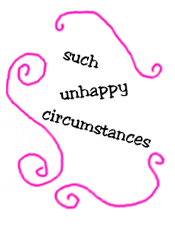 [Note to readers: this one was posted originally back in the heat of the Lewinsky scandal, if you didn’t guess that already…]
[Note to readers: this one was posted originally back in the heat of the Lewinsky scandal, if you didn’t guess that already…]
Bill Clinton, Bill, Bill, Bill, Bill, Bill, Bill. Sigh. You sure are giving husbands a bad name, now, aren’t you? What to do? What to do? Perhaps this bit of advice to wives from Bernarr Macfadden’s Womanhood and Marriage will help your family in these difficult times.
1923: The Erring Husband
![]() A still greater problem is presented to the wife who discovers that her husband has been unfaithful to her.
A still greater problem is presented to the wife who discovers that her husband has been unfaithful to her.
We are apt to feel that there can be no degrees of comparison in unfaithfulness. One act of infidelity seems as great an outrage as a long period of unfaithfulness. In reality, there may be a great difference. The man who is carried away by the passion of a moment, but whose real, underlying desire is to be true and faithful, is a very different being from the one who permits himself to remain in a state of infidelity. The one act may be but the result of an overwhelming impulse which sweeps the individual away from his moorings for the time being. A soon as reason regains her throne, however, he returns once more to his allegiance. The other seems to lack the very essentials of loyalty.
Of course, the wife whose husband has momentarily transgressed may say that he had no right to allow himself to be placed in a position where he could be so tempted, and to a certain degree she is right. Yet women should take into account the designing actions of other women, the way in which they many times throw themselves into the path of some man who has attracted them, and artfully draw him into a net before he has become aware of their real purpose. For this he is more to be pitied than blamed, and his wife should be the first one to realize his helplessness in the hands of a designing female.
It will be apparent from these remarks that I do not feel it the wife’s duty immediately to repudiate her husband upon the discovery that he has been unfaithful to her. Let her first learn what the real state of his heart is. Suppose he has become temporarily enamoured of another woman, even to the point of unfaithfulness; does that mean that he has no love in his heart for his wife? Has he considered what it would mean to him to be deprived of wife and home and children, and is he ready to sacrifice it all for what seems to him to be another’s love? These are questions to which she should know the answer before she decides upon her course of action. . . .
When the husband is guilty of repeated acts of infidelity the wife finds herself in a different and a very difficult situation. Here is a man who is apparently incapable of faithfulness. Is it her place to forgive his repeated offences and receive him always with open arms whenever he feels impelled to return to her? Is she doing him any real good by so doing? Are there children in the home, and under what conditions are they being brought up? . . .
Not only may it be necessary for the wife to separate herself from the erring husband for her own sake and the sake of the children, but his welfare also may demand it. It may be the only thing which will cause him to pause and ponder upon the path which he is pursuing. It may serve to bring him to his senses, so that, whether their lives are rejoined or not, he will master himself to the degree of being faithful to someone, and thus he will really be benefited by the separation.
The question as to what should be done when unfaithfulness has been discovered, therefore, is one which can be answered only by those who are involved, and the right solution can be found only by considering the welfare of all concerned. This much may be said, however, for the guidance of all under such unhappy circumstances, that what is really best for one will be found to be best for all concerned.![]()
Source: Macfadden, Bernarr. Womanhood and Marriage. New York: Macfadden Book Company, Inc.,1923.
~ pp. 212-13, 216-18 ~